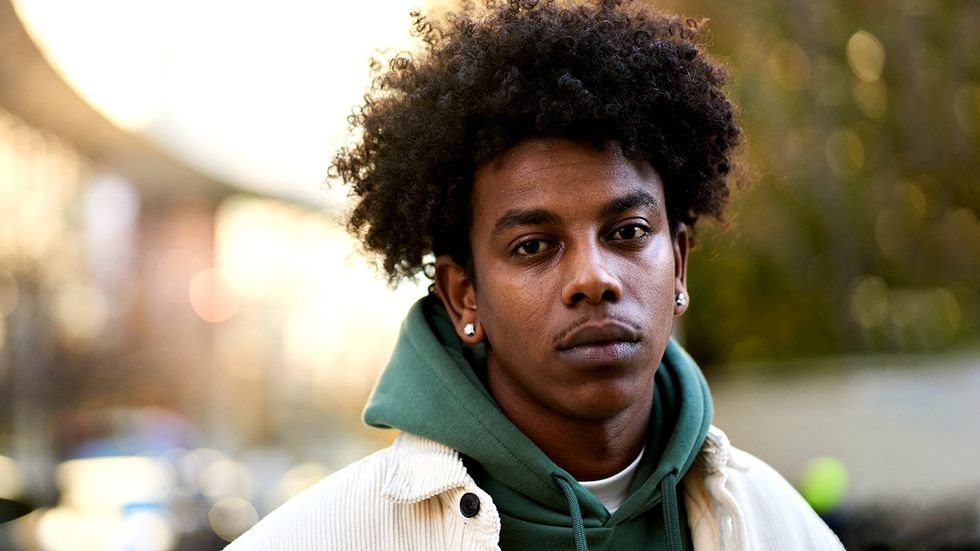Black LGBTQ+ young people are experiencing high rates of discrimination and victimization — and with that comes a high suicide risk, especially among transgender, nonbinary, and questioning Black youth, says a new report from the Trevor Project.
Twenty-one percent of Black trans, nonbinary, and questioning young people reported a suicide attempt in the past year, notes the Trevor Project’s research brief, titled “Discrimination Among Black LGBTQ+ Young People and Suicide Risk,” released Tuesday and based on data collected through the Trevor Project’s 2023 U.S. National Survey on the Mental Health of LGBTQ Young People. That compares to just 8 percent of Black cisgender LGBQ youth.
The difference is “not surprising” but “telling,” says Derrick Matthews, director of research science at the Trevor Project and lead author of the brief.
“No single factor or experience definitively causes someone to have higher odds of considering or attempting suicide,” he tells The Advocate via email. “However, these data show that experiences of gender discrimination were associated with higher odds of suicide risk for Black transgender, nonbinary, and questioning young people. Intersecting identities are imperative to analyze when we talk about experiences of discrimination because, simply put, the more marginalized identities a person holds, the more opportunities they have to be discriminated against.”
“This signals a greater need for allies, advocates, families, and friends to better support and affirm the gender-expansive Black LGBTQ+ young people in their lives — in a way that may vary from how we might show up for cisgender Black LGBQ youth,” Matthews notes.
Demonstrating the pervasiveness of discrimination, 70 percent of Black cis LGBQ youth reported experiencing discrimination based on their race, sexual orientation, or gender identity or expression in the past year, while the proportion was even greater — 83 percent — among Black trans, nonbinary, or questioning youth. The majority reported experiencing two or more forms of discrimination. Discrimination based on sexual orientation and gender identity or expression were both associated with a heightened risk of suicide. But many who’d experienced this discrimination also reported receiving support from someone in their life, such as a friend, a romantic partner, a therapist, or a sibling.
 Shutterstock
Shutterstock
“Although these results can be dispiriting, we encourage all LGBTQ+ youth-facing people to use these findings to bolster efforts to both end discrimination and address its effects head on,” the report says. “Black LGBTQ+ young people themselves have not only acknowledged the role of intersectional discrimination in their own lives, but have shaped their activism to be intersectional to combat it as well. Adults working with Black LBGTQ+ young people should ensure that they are prepared to support all aspects of Black LGBTQ+ young people’s identities as they navigate the combined effects of racism, anti-LGBTQ bigotry, and other forms of bias.”
“While there will always be a role for providing services to help Black LGBTQ+ young people cope with the effects of living in a discriminatory social environment, we must also not lose sight that the goal must always be to reduce exposure to discrimination in the first place,” the brief continues. “We should celebrate the resilience of Black LGBTQ+ young people for thriving, but that cannot absolve us of a collective responsibility to move closer to a world where that resilience is not a necessary part of survival.”
Matthews noted that Black LGBTQ+ young people aren't inherently proned to a higher risk of suicide.
“Rather, they are placed at higher risk because of how they are mistreated and stigmatized by others," he explained. "These findings are difficult. But they should serve as a call to action for allies, advocates, youth-serving professionals, and adults everywhere: It’s time to step up our efforts to let Black trans and nonbinary young people know that we are here for them by working to reduce their experiences of discrimination — and reminding them that this world really is a better place because they are in it.”
If you are having thoughts of suicide or are concerned that someone you know may be, resources are available to help. The 988 Suicide & Crisis Lifeline at 988 is for people of all ages and identities. Trans Lifeline, designed for transgender or gender-nonconforming people, can be reached at (877) 565-8860. The lifeline also provides resources to help with other crises, such as domestic violence situations. The Trevor Project Lifeline, for LGBTQ+ youth (ages 24 and younger), can be reached at (866) 488-7386. Users can also access chat services at TheTrevorProject.org/Help or text START to 678678.
































 Shutterstock
Shutterstock
















































